Introduction
Millennials, often dubbed the ‘Rx Generation,’ have been at the center of discussions around prescription drug use and healthcare behaviors. This article explores whether this nickname genuinely reflects their actions or if it is a misinterpretation fueled by stereotypes. By diving into millennial health choices, patterns in medication use, and the influence of socio-economic factors, we aim to separate fact from fiction.
Understanding Millennial Prescription Use
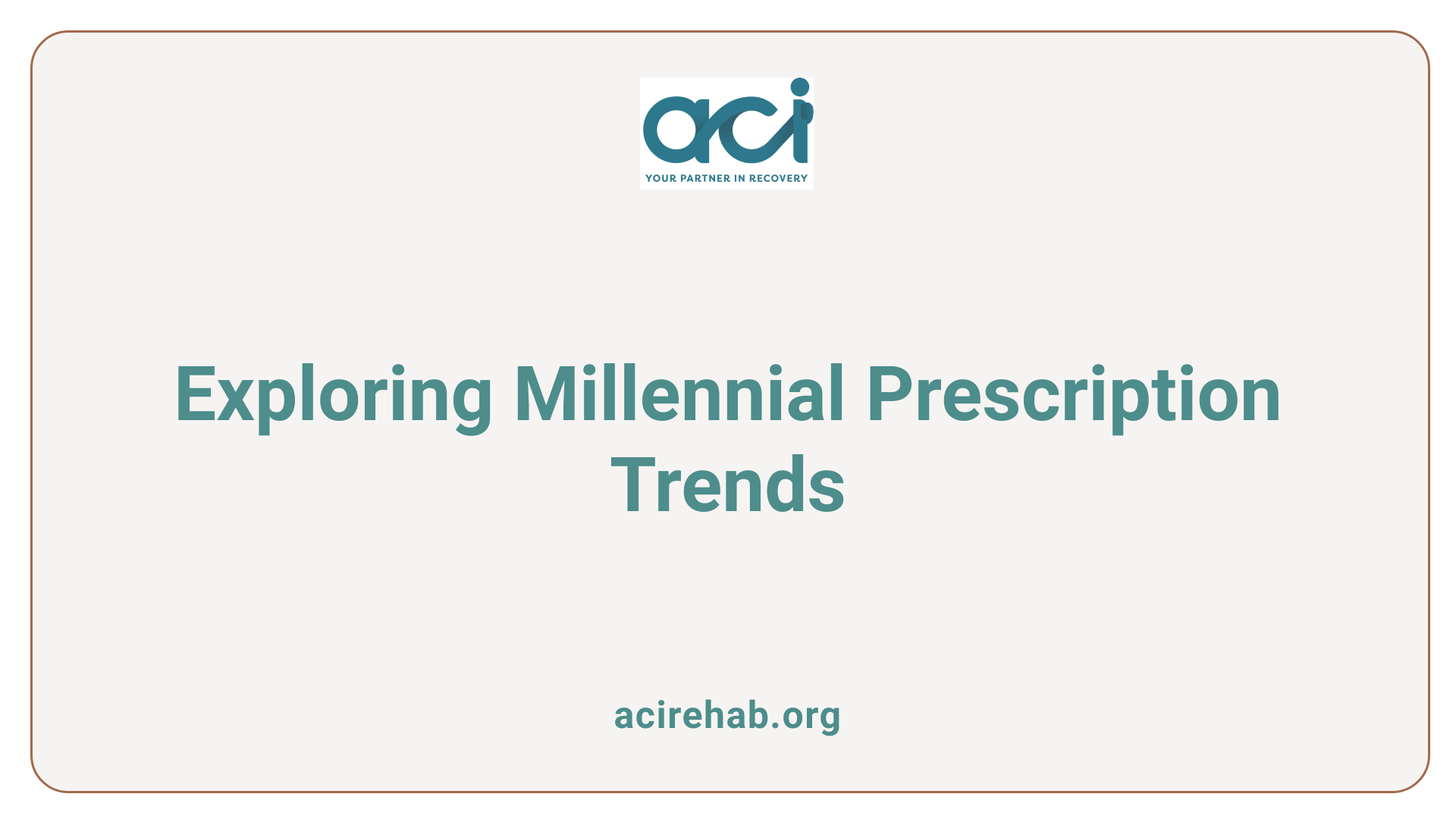
Prescription rates among Millennials
Approximately 28% of Millennials regularly take prescription medications, highlighting a notable reliance on these drugs for managing health. This statistic showcases diverse healthcare needs within the generation.
Common medications
Millennials commonly use several types of medications, including:
- Antidepressants: About 30% engage with these for mental health support.
- Birth Control: Utilized by 25%, illustrating the importance of reproductive health.
- Allergy Medications: Around 20% rely on these to manage chronic conditions.
Healthcare needs
Millennials face unique healthcare challenges influenced by financial constraints. The economic pressures of student loans and rising living costs result in cautious spending and a preference for affordable healthcare solutions. They remain health-conscious, prioritizing preventative care, with 55% of them trusting online health resources as much as medical professionals. This is indicative of a generation that values health management through information and accessibility, paving the way for greater healthcare demands as they continue to age.
How do stereotypes about Millennials and healthcare relate to their actual behaviors?
Stereotypes about Millennials often depict them as either overly dependent on technology for healthcare or indifferent towards it. In reality, Millennials exhibit a balanced approach to healthcare decisions, merging online research with advice from trusted healthcare professionals, such as doctor’s offices. Despite financial constraints stemming from events like the Great Recession and the COVID-19 pandemic, they are dedicated to investing in their health and wellness, showcasing a preference for digital healthcare solutions. This generation emphasizes the importance of personal interactions and trust, reflecting a desire for transparency and genuine connections with healthcare providers. As they age, Millennials are expected to require more healthcare services, challenging providers to adapt their strategies to meet these evolving needs.
Myths Around the ‘Rx Generation’ Label
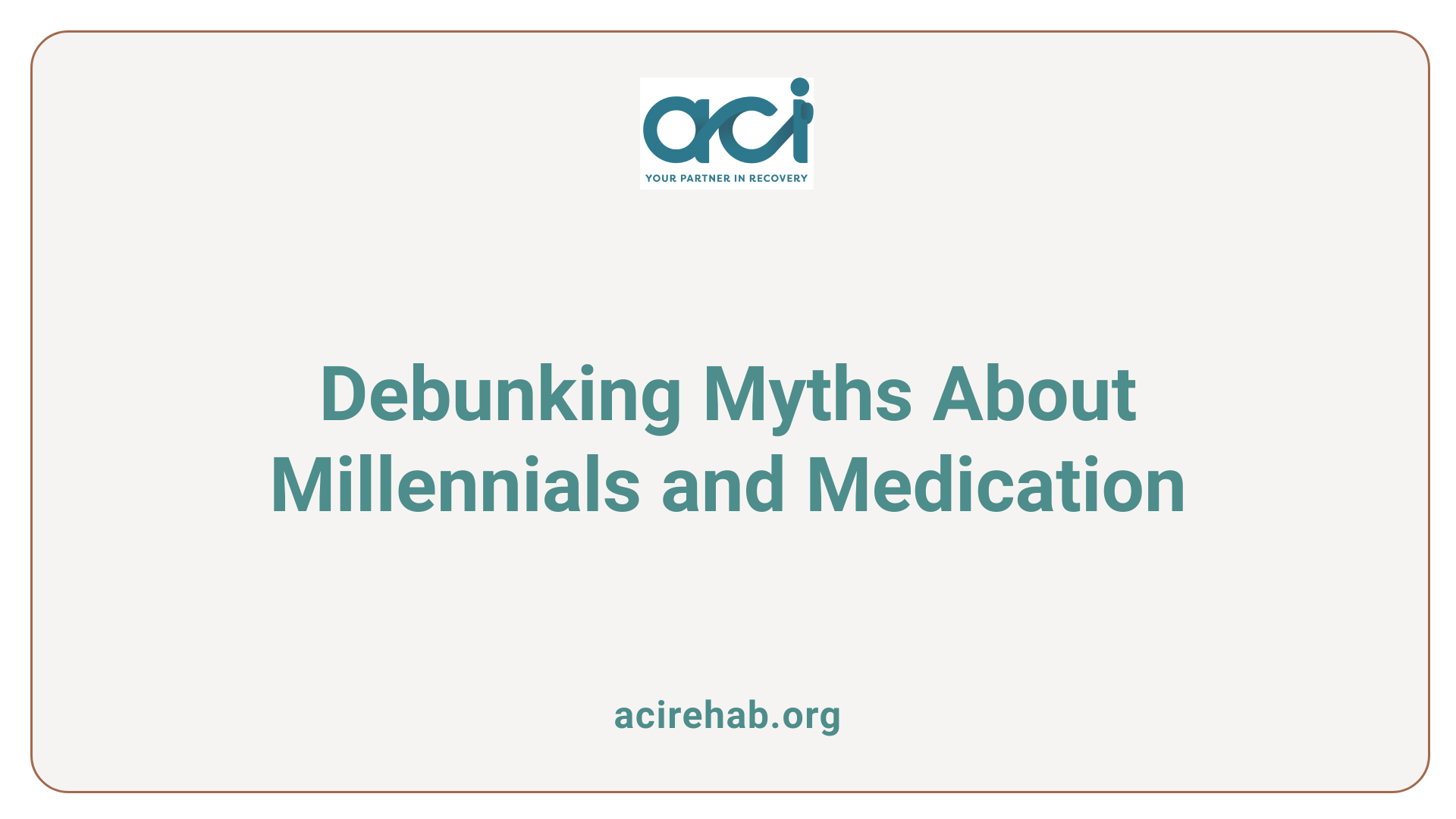
Debunking Myths About Millennials
The term ‘Rx Generation’ often carries negative connotations, suggesting that Millennials are overly reliant on prescription medications. However, this stereotype fails to consider the complexity of the generation’s healthcare habits and needs. Notably, while approximately 28% of Millennials take prescription medications—primarily for anxiety, depression, or chronic illnesses—only about 4.3% of young adults aged 18 to 25 engage in non-medical use of prescription drugs. This statistic challenges the prevalent narrative and underscores that not all Millennials misuse medications or depend heavily on pharmaceuticals.
Prescription Misuse Statistics
A deeper dive into misuse statistics reveals that, in 2019, about 3.9 million young adults aged 18 to 25 misused prescription drugs. Despite this number, it is crucial to recognize that most prescription drug misuse happens among older adults, indicating that Millennials are not leading this trend. Factors contributing to the perception of Millennials as the ‘Rx Generation’ include stress, accessibility of drugs through social networks, and societal expectations. Thus, a nuanced understanding of this generation is essential, embracing their legitimate healthcare needs while dispelling oversimplified stereotypes.
Millennials and Healthcare: Steering Pharmaceuticals
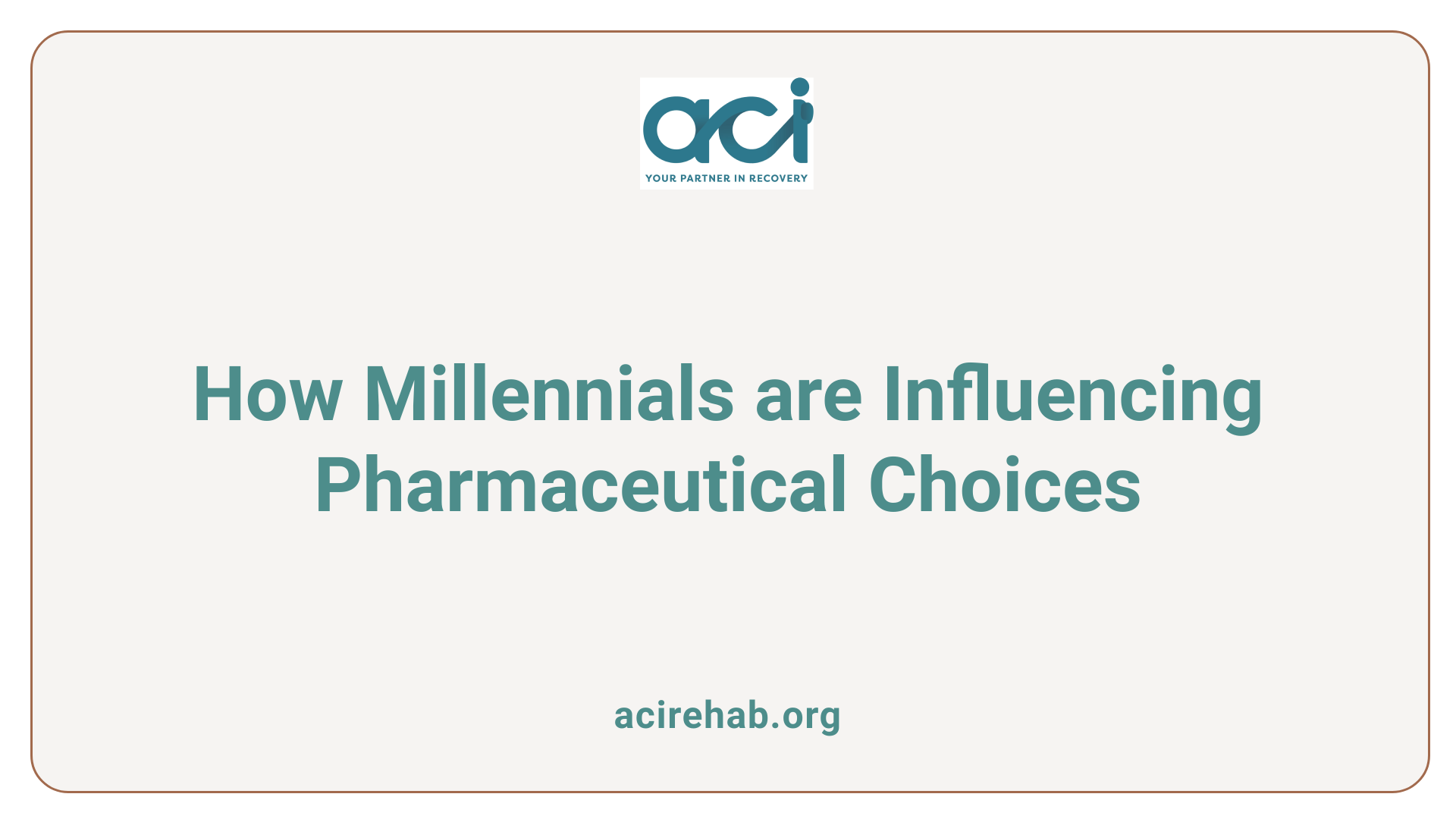
How do Millennials’ healthcare choices impact the pharmaceutical industry?
Millennials exert a significant influence on the pharmaceutical industry, reshaping how healthcare products and services are offered. This generation is increasingly inclined toward digital health solutions and personalized medication. Their demand for transparency and information access drives pharmaceuticals to adapt their approaches, often focusing on digital engagement methods.
Several key trends emerge from this shift:
- Preference for Digital Engagement: Millennials rely heavily on technology for health management. Over half trust online health resources as much as medical professionals, emphasizing the role of digital platforms in healthcare decisions.
- Rise in Telehealth Services: The demand for convenient healthcare options is evident in the dramatic increase in telemedicine usage, which has skyrocketed since 2019. This indicates a preference for remote consultations, reflecting their busy lifestyles and financial constraints.
- Holistic Health Options: Millennials are inclined towards wellness and preventive care. A notable 71% prefer natural or dietary alternatives, pushing pharmaceutical companies to diversify their product offerings beyond traditional medications.
- Focus on Reviews and Feedback: With more than half of millennials relying on online reviews to select healthcare providers, pharmaceuticals are now prioritizing consumer feedback in their marketing strategies. This generation’s skepticism towards traditional healthcare encourages brands to cultivate trust through transparent communication.
Overall, millennials’ healthcare choices drive the pharmaceutical industry toward innovative, member-centric models, prioritizing convenience, personalization, and cohesive engagement strategies.
Economic Challenges and Healthcare Access
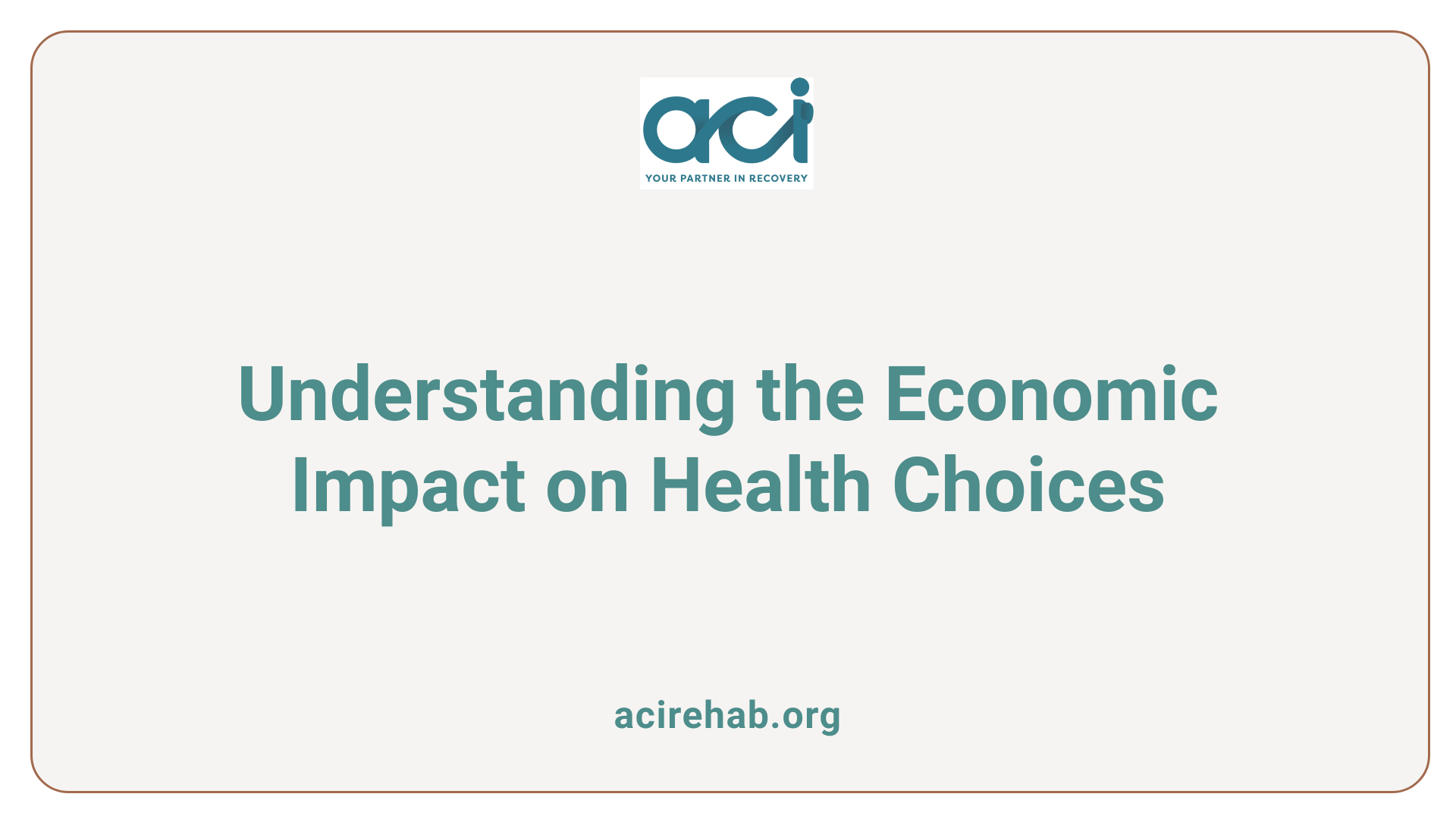
In what ways do socio-economic factors affect Millennials’ healthcare decisions?
Socio-economic factors significantly shape Millennials’ healthcare decisions through various pathways. Many Millennials face substantial financial pressures due to student loan debt and a challenging job market, which directly influences their access to healthcare and prescription medications. Approximately 54% of them avoid seeing a doctor out of fear of high costs, with 41% actively requesting cost estimates before treatment.
This financial strain contributes to disparities in health outcomes. Wealthier Millennials typically enjoy better access to outpatient services, while lower-income individuals encounter longer wait times for emergency care. For instance, research reveals that lower socioeconomic status often correlates with increased prevalence of chronic conditions like diabetes within this generation, leading to more frequent hospital admissions.
Despite these hurdles, Millennials prioritize wellness and actively seek preventative care, even making conscious decisions to pursue cost-effective healthcare solutions. Digital technology plays a pivotal role, with many utilizing online resources to research healthcare options, mirroring their evolving expectations in an economically strained environment.
Access to healthcare
Millennials’ approach to healthcare is markedly influenced by economic conditions. They demonstrate a growing preference for telemedicine and retail clinics, reflecting a shift towards convenient, financially accessible medical services. As healthcare spending among this demographic is set to rise, addressing their unique economic challenges will be crucial in shaping effective healthcare strategies.
| Economic Factor | Impact on Healthcare Access | Notes |
|---|---|---|
| Student Loan Debt | Limits disposable income | Increases financial anxiety; leads to avoidance of healthcare services. |
| Employment Status | Affects access to health benefits | Unemployment or underemployment restricts access to quality healthcare services and medications. |
| Digital Health Solutions | Offers alternative access options | Telemedicine and online resources provide more affordable, easily accessible care for Millennials. |
Drug Use Patterns Across Generations
How do patterns of drug use among Millennials compare to previous generations?
Patterns of drug use among Millennials reveal notable deviations from those seen in Baby Boomers and Generation X. For instance, Millennials show a higher prevalence of alcohol use disorders. Research indicates that 80% of Millennials aged 30 to 34 engaged in alcohol consumption within the last year. Their consumption trends reflect broader societal changes, fueling substantial concern among health professionals.
Additionally, marijuana usage has markedly increased among Millennials, with the number of past-year users rising from 6.45 million to 8 million between 2021 and 2022. This shift underscores changing perceptions and the legalization of cannabis in many regions.
Moreover, Millennials are experiencing significant challenges related to prescription painkiller abuse, outpacing their older counterparts. Over 12% of Millennials aged 19-20 have reported misusing these medications, raising alarm over their reliance on opioids.
Economic hardships, including student loan debt and stagnant wages, exacerbate these issues, highlighting how financial stressors contribute to heightened rates of substance misuse and binge drinking in this generation. From a broader perspective, this data illustrates a complex interplay between evolving attitudes towards drug use, economic realities, and the ongoing challenges Millennials face, which significantly differ from those of previous generations.
| Generation | Alcohol Use Disorders | Marijuana Use (2021-2022) | Prescription Painkiller Abuse (Ages 19-20) |
|---|---|---|---|
| Millennials (30-34) | 80% | 8 million | >12% |
| Generation X | Lower | Less common | Lower |
| Baby Boomers | Lowest | Rare | Lowest |
Technological Influence on Healthcare Choices
Digital Health Resources
Millennials are changing the way healthcare information is accessed and utilized. Approximately 55% of this generation trusts online health resources as much as doctor recommendations. This reliance on digital sources highlights their preference for convenience in managing their health. With the growing use of telemedicine, which saw a dramatic rise of 210.7% since 2019 among millennials, it’s clear that they favor technology-driven healthcare options that fit their busy lifestyles.
Tech-savvy Behaviors
Tech-savvy behaviors among millennials extend beyond just seeking information. They are active participants in their health management, utilizing apps and wearable devices to track fitness and monitor nutrition. This engagement allows them to make informed decisions about their healthcare and aligns with their desire for personalized treatment options. Notably, 71% of millennials express a preference for natural or dietary alternatives over standard medications, showcasing their inclination towards holistic health management and preventive care strategies.
Mental Health and Medication
Mental Health Awareness
Millennials are increasingly prioritizing mental health, demonstrating a significant shift in societal attitudes. About 30% of millennials regularly take antidepressants, reflecting the rising awareness and acknowledgment of mental health challenges. Many individuals from this generation actively seek therapy as part of their wellness journey. This trend is reshaping what it means to pursue mental health care, leading to the notion of millennials as the ‘Rx Generation.’
Education on mental health and its impact is crucial, as it empowers millennials to make informed decisions about seeking help. However, while there is greater acceptance around mental health treatment, it’s important to note that not all millennials face issues requiring medication.
Medication Reliance
Approximately 28% of millennials regularly take prescription medications, often for mental health purposes or chronic conditions such as allergies and asthma. Common prescriptions include contraceptives and antidepressants, stemming from the stressors linked to their economic and societal environment.
Despite this statistic, the idea that millennials are excessively reliant on medication is an oversimplification. Only 4.3% of younger millennials engage in the non-medical use of prescription drugs. This statistic challenges stereotypes and highlights the diversity within this generation. Comprehensive educational resources and open discussions regarding mental health can further dismantle misconceptions linked to the so-called RX Generation.
Preventive Care and Alternative Medicine
Holistic Health Approaches
Millennials prioritize a holistic view towards well-being, with striking preferences for alternative therapies over conventional medications. Data indicates that nearly 37% of millennials opt for alternatives, suggesting a shift towards wellness methods that emphasize preventive care and lifestyle changes.
Moreover, surveys show that 71% of millennials lean towards natural or dietary alternatives over standard prescription drugs. This reflects a growing demand within this demographic for treatment options that align with their values of wellness and health consciousness.
Preventive Care Trends
Emphasizing preventive care, millennials are actively involved in their healthcare, with approximately 65% prioritizing it. The rise of technology, including mobile health apps and wearable devices, supports this trend, allowing millennials to track their fitness and nutrition easily.
Their engagement with online health resources is notable, with 55% trusting information found online to be as reliable as doctor consultations. By seeking preventive measures and utilizing informative tools, millennials demonstrate a proactive rather than a reactive approach to healthcare, showcasing their commitment to achieving longer-lasting health outcomes.
The Impact of Economic Instability
How Did the Recession Impact Millennials?
Millennials, who entered the workforce during or after the Great Recession (2007-2009), faced unique economic challenges. The aftermath of this financial crisis significantly affected their earning potential, with recession-era graduates earning about 4-5% less than those from previous generations. This wage stagnation leads many to struggle with mounting student loan debt—part of a staggering collective total of $1.6 trillion, affecting their decisions around healthcare and prescriptions.
What Are the Long-term Economic Effects?
The long-term implications for millennials include delayed milestones like homeownership and marriage. Reportedly, millennials are making about $80,000 less over a twenty-year span due to these economic conditions, which in turn shapes their lifestyle choices, including healthcare consumption. With a 70% employment rate and many prioritizing work-life balance amidst financial stress, millennials are reshaping their health management strategies, often seeking preventive care and alternative therapies to mitigate the impact of economic pressures on their health.
Millennials and the Healthcare System
Changing Healthcare Expectations
Millennials have shaped new expectations for the healthcare system, driven by their tech-savvy nature and preference for accessible information. They often seek quick and convenient healthcare solutions, with 74% preferring to book doctor appointments online, showcasing a demand for streamlined processes.
A significant 55% of millennials trust online health resources just as much as traditional doctor advice, highlighting a shift in how this generation engages with their health. The desire for transparency extends to understanding costs: 41% of millennials request cost estimates before treatment, reflecting their financial concerns amid rising healthcare costs.
App Utilization
Technology plays a vital role in millennials’ health management. Many actively use health apps and wearable devices to track fitness and nutrition, demonstrating a proactive approach to wellness. This generation shows a growing interest in telemedicine, illustrated by a 210.7% increase in usage since 2019, as they seek convenient healthcare options that align with their busy lifestyles.
Millennials are also gravitating toward personalized healthcare interventions like gut microbiome tests and DNA screenings, signaling a strong shift towards tailored health solutions in their healthcare choices.
| Aspect | Millennial Preference | Implications |
|---|---|---|
| Appointment Booking | Online (74%) | Eases access to care |
| Trust in Online Information | 55% equivalent to doctors | Shifts healthcare communication dynamics |
| Cost Transparency Requests | 41% | Reflects economic caution |
| Telemedicine Growth | 210.7% increase since 2019 | Indicates preference for convenience |
| Interest in Personalized Interventions | High | Promotes tailored healthcare approaches |
This overview highlights how millennials’ unique perspectives are influencing healthcare engagement in significant ways.
Future Healthcare Trends with Millennials
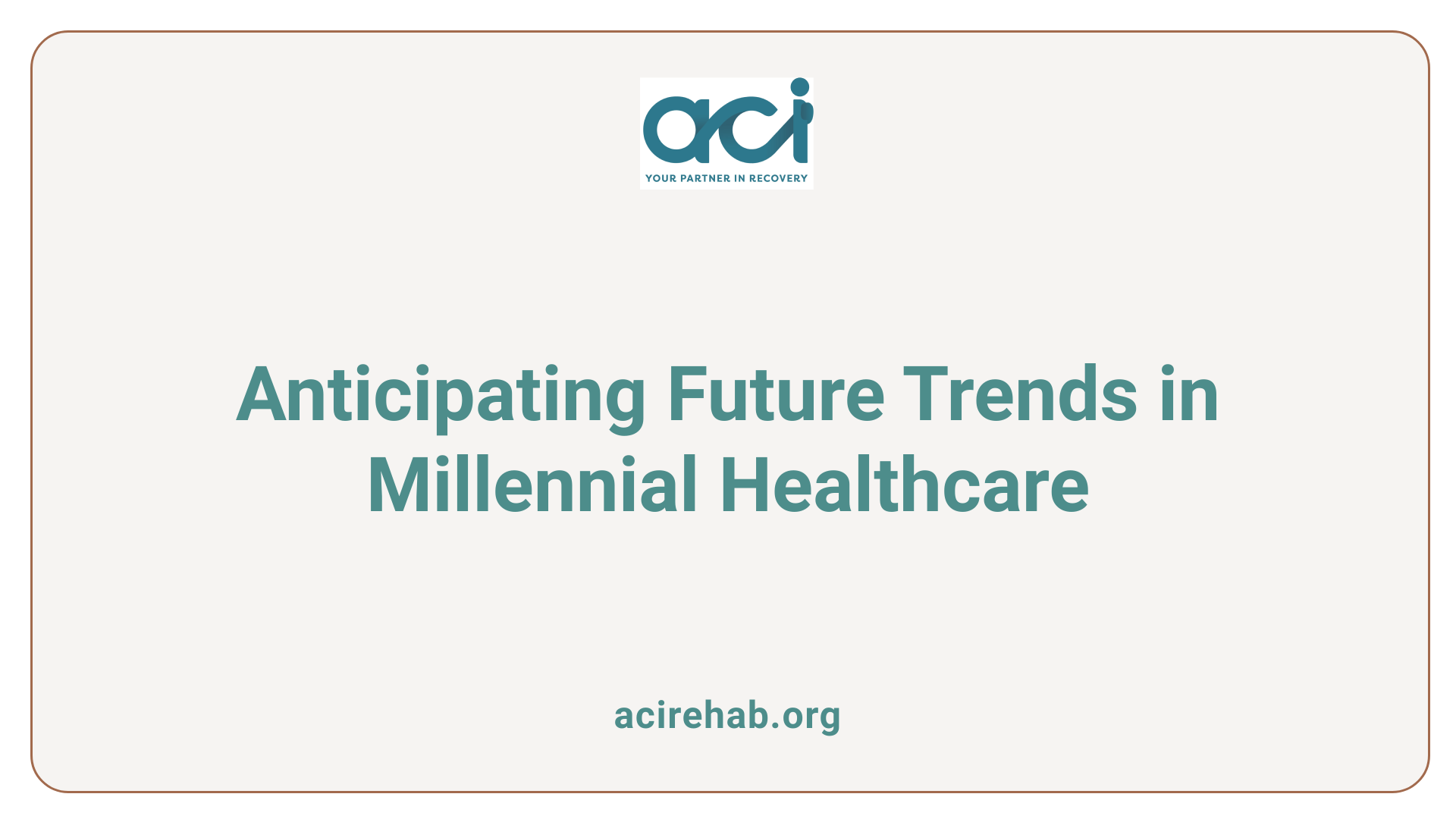
Shifting healthcare landscape
Millennials are reshaping the healthcare system with their unique needs and preferences. This generation prioritizes preventative care and seeks personalized treatment plans, often driven by their tech-savvy nature. A staggering 71% favor natural or dietary alternatives over conventional medications, showcasing a shift towards holistic health management. Additionally, 55% trust online health resources just as much as advice from doctors, indicating a reliance on digital platforms for health information. This trend has led to a growing acceptance of telemedicine, which has seen a 210.7% increase among millennials since 2019, highlighting their preference for convenience and technology-driven healthcare options.
Emerging health priorities
As mental health awareness continues to thrive, millennials are prioritizing emotional and mental well-being, with 90% indicating such support is crucial for their health. They actively engage in discussions about mental health, seeking therapy and medication when needed. Economic factors like student debt and job market competitiveness also affect health-related decisions, as financial insecurity leads some to avoid traditional healthcare settings. As millennials mature, their approach to healthcare is likely to evolve, emphasizing preventative care and personal wellness, driving innovation in health services.
| Trend | Statistic | Impact |
|---|---|---|
| Preference for natural remedies | 71% favor dietary alternatives | Encourages more holistic healthcare options |
| Trust in online resources | 55% trust online info like doctors | Shifts reliance towards digital health platforms |
| Rise of telemedicine | 210.7% increase since 2019 | Boosts access and convenience in healthcare |
| Focus on mental health support | 90% want emotional health resources | Greater demand for mental health services |
Conclusion
As Millennials navigate an increasingly complex healthcare landscape, their choices reflect a nuanced understanding and adaptation to modern challenges. Despite financial barriers and stereotypes, they are committed to maintaining their health through balanced approaches that combine traditional and digital resources. By embracing technology, demanding transparency, and prioritizing mental wellness, Millennials are not merely defining new healthcare pathways for themselves but also reshaping the industry’s future. These patterns highlight the importance of discarding dated generational labels and recognizing the diversity within the Millennial cohort, ensuring that their unique health needs and perspectives are understood and met.
References
- Are Millennials Really the Rx Generation? – Attain Behavioral Health
- Exploring The Rx Generation Myth Among Millennials
- Are Millennials Really the Rx Generation? – Waves of Hope
- Are Millennials Really the Rx Generation?
- Debunking the Myth: Are Millennials Really the Rx Generation?
- Are Millennials Really the Rx Generation? – Arista Recovery
- Are Millennials Really the Rx Generation?
- Are Millennials Really the Rx Generation? at BrighterDay

